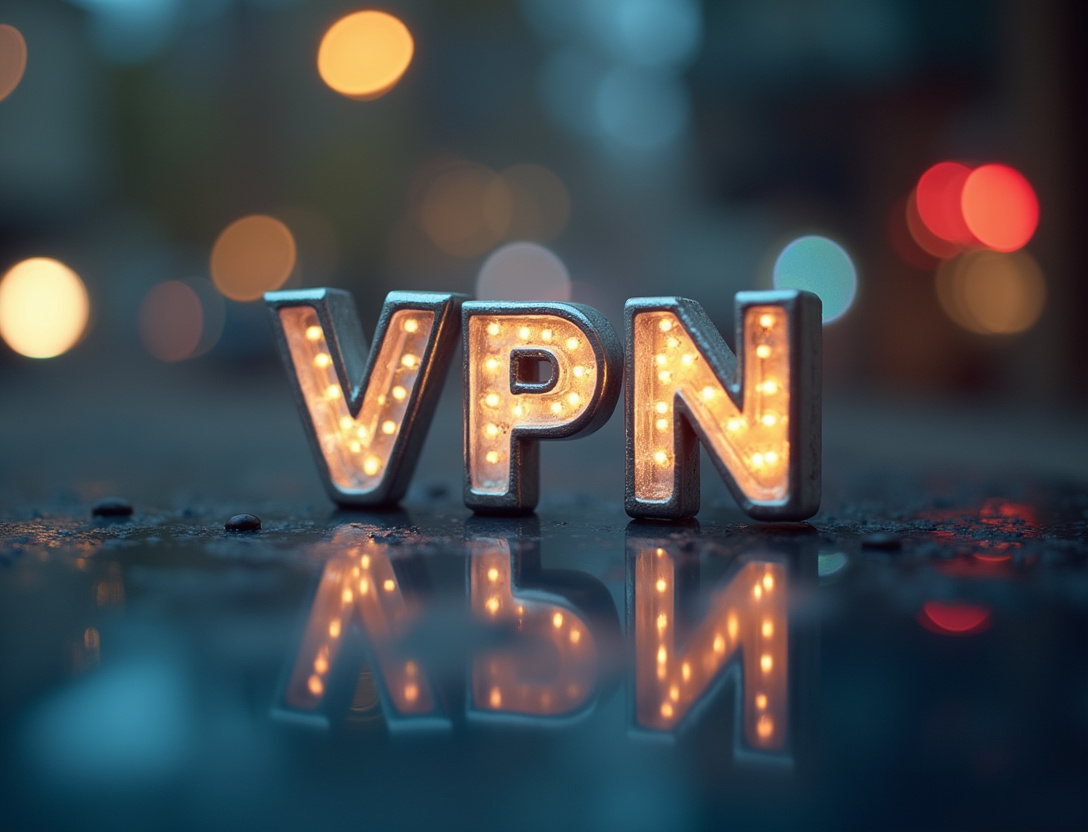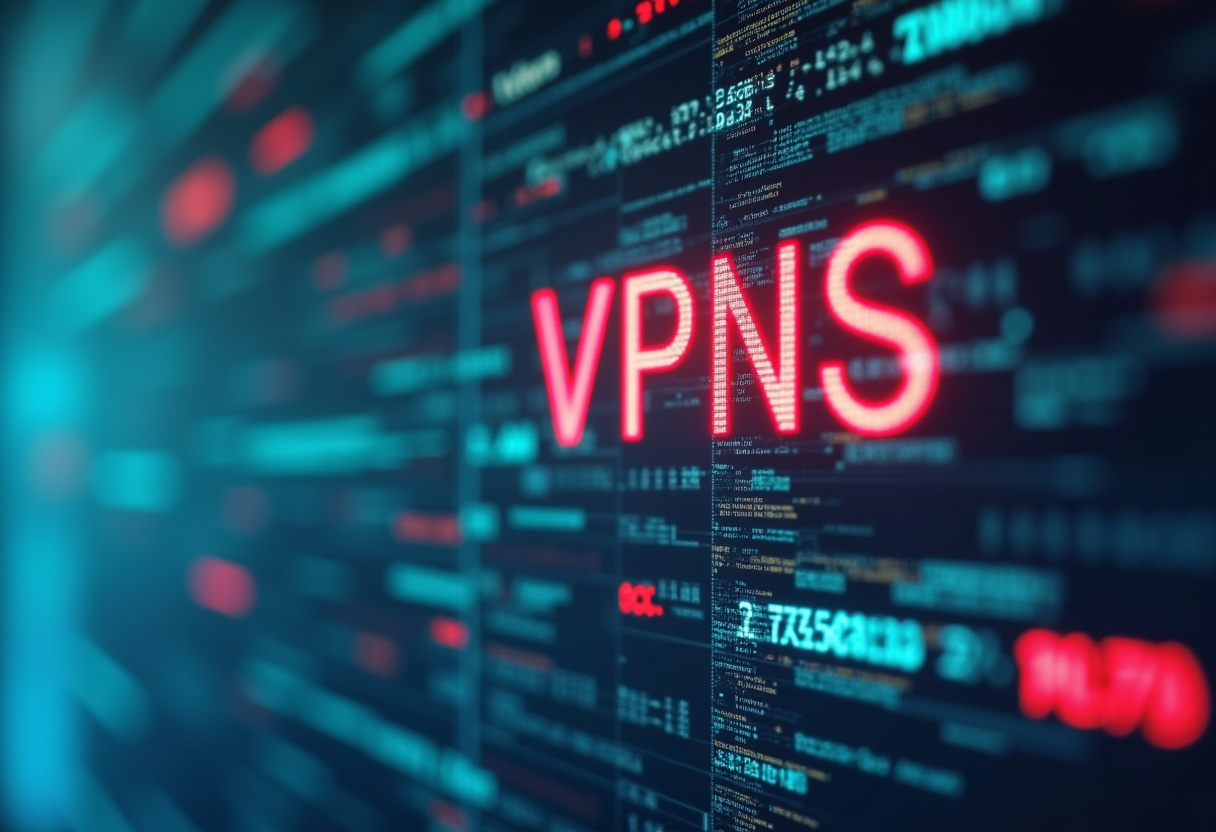VPNs for Automotive Tech: Securing In-Vehicle Data

Table of Contents
The Growing Need for VPNs in Automotive Technology: Protecting Data and Privacy
Virtual Private Networks (VPNs) are rapidly becoming indispensable tools in the automotive technology sector, particularly for securing the vast quantities of in-vehicle data generated by modern connected cars. This article serves as a deep dive into the crucial role VPNs play in protecting this sensitive information, enhancing passenger privacy, and bolstering overall technology protection within the automotive ecosystem. Modern vehicles are evolving beyond simple transportation; they are now sophisticated, data-rich platforms on wheels.
They continuously collect, process, and transmit an unprecedented volume of data ranging from navigation routes and entertainment selections to vehicle diagnostics, driving habits, and even biometric information gathered through advanced driver-monitoring systems. This data trove provides invaluable insights for manufacturers, service providers, and third-party application developers, enabling them to refine vehicle designs, personalize user experiences, and optimize service delivery. However, this data explosion also creates a significant vulnerability: The more connected a vehicle becomes, the more susceptible it is to cyberattacks designed to compromise sensitive information, disrupt vehicle operations, and jeopardize passenger safety.
Understanding the scope of this threat is paramount. Cyberattacks targeting connected cars can range from relatively minor inconveniences, such as unauthorized access to infotainment systems, to catastrophic events, like remote manipulation of critical vehicle functions such as braking or steering. The data itself can also be a prime target.
Hackers might seek to steal personal information for identity theft, track vehicle movements for surveillance purposes, or even hold vehicle systems hostage for ransom. In this evolving threat landscape, traditional security measures are often insufficient. Firewalls, antivirus software, and intrusion detection systems can provide a baseline level of protection, but they may not be equipped to handle the sophisticated and rapidly evolving tactics employed by cybercriminals.
This is where VPNs come into play. VPNs offer a robust layer of security that can effectively mitigate many of the risks associated with connected car technology. By establishing a secure, encrypted tunnel between the vehicle and a remote server, a VPN ensures that all data transmitted is protected from eavesdropping, interception, and tampering.
This encryption process transforms data into an unreadable format, rendering it useless to unauthorized parties. The implementation of VPN technology within the automotive industry signals a proactive approach to strengthen data security, passenger privacy, and overall technology protection. As vehicles evolve into intelligent and connected entities, they become more vulnerable to cyberattacks that potentially compromise valuable data, disrupt vehicle operations, and crucially, endanger passenger safety.
In this context, VPNs emerge as essential tools for protecting in-vehicle data and minimizing the risks connected with sophisticated car technology. As we delve deeper into the role of VPNs in automotive technology and their benefits, it becomes increasingly apparent that they are not just an optional add-on but a necessary component of any comprehensive security strategy for connected vehicles. The stakes are simply too high to ignore the potential consequences of cyberattacks in the automotive sector.
Understanding VPN Functionality and Benefits for Automotive Data Security
The core strength of a VPN lies in its ability to create a secure, encrypted connection, often referred to as a tunnel, between two endpoints. In the context of automotive technology, this tunnel typically exists between the vehicle's infotainment system, its telematics control unit, or any other connected device within the car, and a remote server controlled by a trusted VPN provider. This encrypted tunnel effectively shields all data passing through it from prying eyes, ensuring confidentiality and integrity.
The encryption process scrambles the data into an unreadable format, rendering it unintelligible to anyone who lacks the necessary decryption key. This key is securely managed by the VPN provider, ensuring that only authorized parties can access the original data. Furthermore, VPNs typically utilize robust encryption protocols, such as AES (Advanced Encryption Standard) with key lengths of 128-bit or 256-bit, which are considered highly secure and resistant to brute-force attacks.
The implementation of a VPN in automotive settings provides multiple benefits to enhance in-vehicle data security. One of the biggest advantages is that it secures data that is transferred across public Wi-Fi networks. Many modern vehicles offer Wi-Fi hotspots allowing passengers access to the internet, unfortunately, these networks are inherently prone to security risks and man-in-the-middle attacks.
When passengers access these potentially vulnerable networks, a VPN will encrypt any data transmitted over the Wi-Fi connection, effectively preventing malicious parties from intercepting personal details like usernames, passwords, or financial details. VPNs are also essential for ensuring communication between a vehicle and its manufacturer's servers is secure. Vehicles are continuously transmitting diagnostic data, software updates, and vital information to manufacturers and service providers.
Implementing a VPN encrypts and protects this communication, stopping it from being intercepted or tampered with by unauthorized parties. This is essential for protecting data and preventing individuals from injecting malicious code into vehicle systems. Passenger privacy can be heavily enhanced with a VPN by masking a vehicle's IP address and location, making it difficult for third-party trackers and ad services to collect the data.
This becomes especially crucial when considering the growing debate around data collection and surveillance with car technology. Also, a VPN offers protection against phishing attacks and malware, by routing traffic through a secure server, VPNs can prevent access to malicious websites and the installation of malicious software. VPNs are also able to ensure that automotive manufacturers remain compliant with data privacy regulations and mandates.
Many nations have put into effect clear privacy laws concerning how individuals can protect personal data. VPNs ensure that manufacturers are taking the correct steps in protecting passenger privacy and remaining in compliance with regulations. Through encrypting data and masking IP addresses, the use a VPN minimizes the chances of a data breach and privacy violations.
Incorporating a VPN should also be inclusive of other practices such as firewalls, regular security audits, and intrusion detection systems. This ensures that the integration of a VPN is inclusive of all security aspects.
Passenger privacy takes center stage when discussing in-vehicle data security. The modern vehicle is equipped with a suite of sensors, capturing fine-grained details about its occupants – from location data gleaned from GPS to behavioral insights derived from driving patterns, communication metadata from paired devices, and even potential biometric data from driver monitoring systems. This rich collection of personal information necessitates robust protection against unauthorized access and misuse.
A VPN serves as a critical shield for passenger privacy, primarily through two key mechanisms: encrypting data traffic and masking the vehicle's IP address. The encryption of internet traffic is a foundational aspect of a VPN's privacy protection. When a vehicle connects to the internet, whether through its embedded cellular connection or a Wi-Fi hotspot, all transmitted data becomes potentially vulnerable to interception.
A VPN addresses this vulnerability by encrypting the data, effectively scrambling it into an unreadable format. This ensures that even if an attacker were to intercept the data stream, they would be unable to decipher its contents without the correct decryption key, thus rendering the information useless. This encryption safeguard is particularly crucial for protecting sensitive data such as login credentials, financial information, and personal communications, safeguarding passengers from identity theft or financial loss.
The second privacy-enhancing feature offered by VPNs is the masking of the vehicle's IP address. Every device connected to the internet possesses a unique IP address, which can be used to pinpoint its geographical location and track its online activity. A VPN acts as an intermediary, replacing the vehicle's actual IP address with one belonging to the VPN server.
This effectively conceals the vehicle's true location and makes it significantly more difficult for third parties to monitor its movements or identify its occupants. This IP masking is particularly valuable in protecting passengers who prioritize their anonymity and wish to avoid being tracked by advertisers, data brokers, or even government entities. Beyond encryption and IP masking, a VPN can also help passengers mitigate the risks of targeted advertising and price discrimination.
Many websites and online services employ tracking technologies to gather information about users' browsing habits and preferences. This data is then used to deliver personalized advertisements or to adjust prices based on a user's perceived willingness to pay. By masking its IP address and encrypting its traffic, a VPN makes it more difficult for these tracking technologies to function effectively, reducing the likelihood of passengers being subjected to intrusive advertising or unfair pricing practices.
By preventing tracking mechanisms VPN minimize the chances that passengers are subjected to ads and pricing practices that are unfair. This level of security allows VPNs to ensure passengers’ privacy while using connected systems and connected applications within vehicles. By taking simple precautions, passengers can proactively safeguard their privacy and avoid the risks of targeted advertising and price discrimination.
The implementation of VPN solutions within automotive design ensures that passenger privacy is paramount and adheres standards.
Beyond the immediate benefits of data security and passenger privacy, VPNs offer a layer of technology protection that extends to the broader automotive ecosystem. The modern vehicle is not merely a collection of mechanical and electronic components; it's a complex, interconnected system reliant on software, firmware, and network connectivity. Protecting this technological infrastructure from cyber threats is crucial for ensuring the safety, reliability, and longevity of vehicles.
One significant aspect of technology protection is safeguarding against unauthorized access to vehicle systems. Modern vehicles are increasingly controlled by software, and gaining access to this software can allow attackers to manipulate vehicle functions, disable safety features, or even render the vehicle inoperable. A VPN can help prevent unauthorized access by encrypting communication channels, securing remote access points, and implementing strong authentication protocols.
This makes it more difficult for attackers to gain a foothold in the vehicle's systems and launch malicious attacks. Another critical area of technology protection is preventing the injection of malicious code into vehicle software. Cybercriminals may attempt to exploit vulnerabilities in vehicle software to install malware, spyware, or other malicious programs.
This malicious code can then be used to steal data, disrupt vehicle operations, or even remotely control the vehicle. A VPN can help prevent the injection of malicious code by filtering network traffic, blocking access to malicious websites, and preventing the installation of unauthorized software. This reduces the risk of vehicles being infected with malware and becoming compromised.
Furthermore, VPNs play a crucial role in securing over-the-air (OTA) software updates. OTA updates are becoming increasingly common in the automotive industry, allowing manufacturers to remotely update vehicle software, fix bugs, and add new features. However, OTA updates also present a potential security risk.
If an attacker were to intercept an OTA update and inject malicious code, they could compromise a large number of vehicles simultaneously. A VPN can secure OTA updates by encrypting the data transmitted during the update process and authenticating the source of the update. This ensures that only authorized updates are installed on the vehicle and that the update process is not tampered with.
In addition to securing vehicle systems and software, VPNs can also protect the intellectual property of automotive manufacturers. Modern vehicles incorporate a vast amount of proprietary technology, including software algorithms, hardware designs, and manufacturing processes. This intellectual property is a valuable asset, and protecting it from theft or unauthorized use is crucial for maintaining a competitive advantage.
A VPN can help protect intellectual property by encrypting communication channels, securing remote access points, and implementing access control policies. This makes it more difficult for competitors or cybercriminals to steal or reverse engineer valuable technology. Overall, VPNs play a vital role in providing layered security solutions, and by implementing VPNs within in-vehicle technology, manufacturers are proactively protecting intellectual data, hardware, software, and infrastructure.
As threats evolve and technology grows, VPNs will play an increasingly important role, offering comprehensive security to a interconnected world and connected vehicles. By encrypting communication channels, securing remote access points, and implementing access control policies, VPNs are helping to create a more secure and reliable automotive ecosystem.
Implementing and Maintaining VPNs in Automotive Systems: Key Considerations
The integration of VPNs into the automotive technology landscape necessitates careful consideration of several key factors. Selecting the right VPN solution, configuring it properly, and ensuring ongoing maintenance are crucial for maximizing its effectiveness and minimizing potential drawbacks. Automotive manufacturers must carefully evaluate their specific security requirements and choose a VPN solution that aligns with those needs.
Factors to consider include the level of encryption offered, the speed and reliability of the VPN connection, the number of server locations available, and the provider's privacy policy. It's also important to ensure that the VPN solution is compatible with the vehicle's infotainment system, telematics unit, and other connected devices. A robust VPN must ensure high levels of encryption, server speed and reliability, privacy policies, and the number of server locations available.
In regards to integration, the VPN solution must work seamlessly with the vehicle's systems, to ensure a secure system. Furthermore, the VPN provider's reputation and track record are important considerations. Manufacturers should choose a provider with a proven history of providing reliable and secure VPN services.
Reading online reviews and consulting with industry experts can help assess a provider's credibility and performance. The configuration of the VPN is equally important. The VPN should be configured to automatically connect whenever the vehicle connects to the internet.
It should also be configured to use strong encryption protocols and regularly update its encryption keys. Additionally, access control policies should be implemented to restrict access to sensitive data and vehicle systems. Regular maintenance is essential for ensuring the ongoing security of the VPN.
Manufacturers should regularly monitor the VPN connection for any signs of compromise or unusual activity. They should also perform regular security audits to identify and address any vulnerabilities in the VPN configuration or infrastructure. Keeping the VPN software up to date is also crucial, as updates often include security patches and bug fixes.
Another key consideration is the impact of the VPN on vehicle performance. Encrypting and decrypting data can add overhead to network communications, potentially impacting the speed and responsiveness of connected services. Manufacturers should choose a VPN solution that is optimized for performance and minimizes any negative impact on the driving experience.
It's also important to educate vehicle owners about the benefits of using a VPN and how to configure it properly. Providing clear and concise instructions can help ensure that owners are taking the necessary steps to protect themselves from cyber threats. Addressing user concerns about privacy and data collection is also crucial for building trust and encouraging adoption.
The future of VPNs in automotive technology is likely to see increased integration with other security measures, such as intrusion detection systems and firewalls. This layered approach to security will help create a more robust defense against cyberattacks. In addition, we can expect to see the development of more specialized VPN solutions tailored to the specific needs of the automotive industry.
This is crucial for promoting vehicle data security and integrity, VPNs should be seen as a necessary precaution for automotive technology. As technology continues to grow and as vehicles become increasingly connected, implementing VPN solutions and improving security measures is imperative.
Stay Updated
Get the latest VPN news, tips, and exclusive deals to your inbox.




